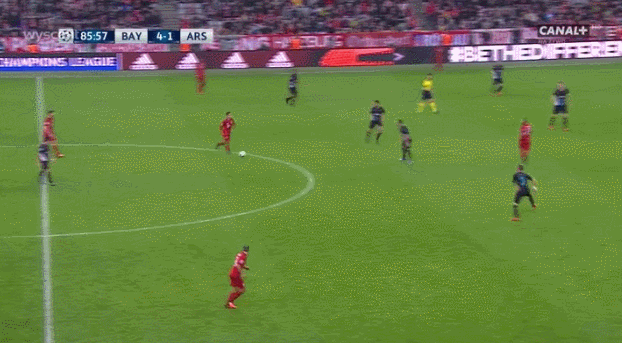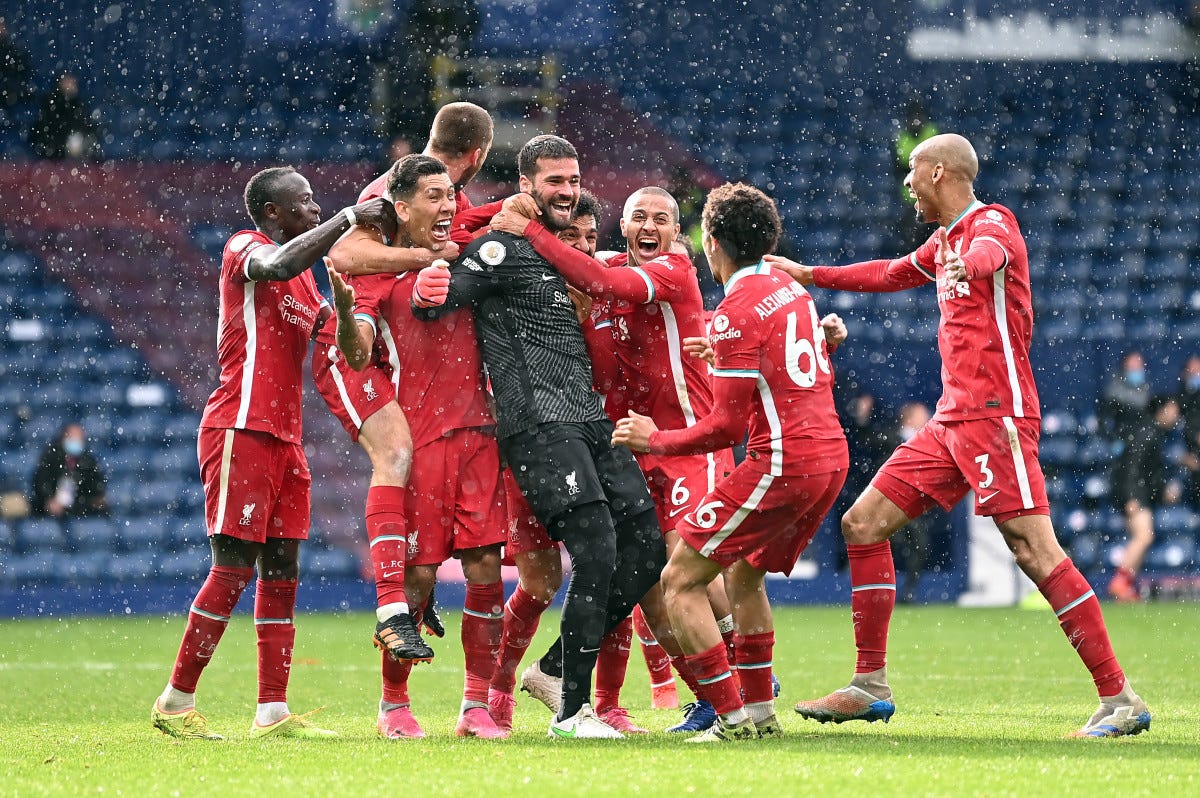A consistent theme in my work are the people I have collaborated with to achieve something greater than ourselves. I have worked with developers, designers, and product managers of varying stripes and pedigree in my short, not yet illustrious career. From student opportunities and filling requisitions at a professional level, I am beginning to build a model of what makes effective teams.
On Talent
I write this at a somewhat unique time for labor. Technical and its adjacent talent never had as much power as it had in the tech industry's 75~ year existence. Throughout the last two years, many employees have taken the time to reflect on what they truly want out of their careers and are acting accordingly. It's what many in corporate media are referring to as "The Great Resignation." Despite how preferable tech treats its employees compared to other industries- there is much to be done to move beyond the post-World War 2 styles of command and control management that have been somewhat effective for many companies.
This type of organizational thinking is commonplace even if we may not realize it. When a company becomes large, it's hard not to see work to be done as a lever to be optimized and then to be seen as a tiny slip of responsibility to handoff. To fight the fulfillment gap- people managers should place more emphasis on team composition. For one who helps build and ship products, the people you spend your time around are one of the highest reasons on what may cause attrition. Hence I feel it's essential to frame the conversation around hiring from the usual Company : Employee relationship to one where team composition is balanced around the greater ecosystem of culture a founder hopes to build.
The central point of this tension is assembly-line thinking vs. artisanship that many people in the computer arts face. On the one hand, companies need direct outcomes. Still, the market also indirectly rewards creativity and brand value not inherently captured in a balance sheet. As a result, I feel like we have several incomplete metaphors that do an excellent job capturing what utilized talent can achieve but fall short on how to get there. This usually means that we now describe roles in how specialized or general they can be- which I feel doesn't usually match how people internalize themselves.
In a misguided effort to take the most advantage of people's working styles, the rise of generalist roles has taken hold. Enterprising entrants into the career ladder or those seeking a flexible workday can now join positions such as Product Manager, Chief of Staff, and Growth. Although I think these roles are essential, people might be wrongly nudged into these career paths for many people. Adding some "drift" can help talent feel fulfilled without throwing someone into an entirely different career ladder.
The Game Loops of Team Building
In "The Art of Game Design," Jesse Shell tells budding game designers that the lenses we use to see the world helps shape how we interact and design for it. We need to set the stage to understand other applications of employment. If you believe incentives drive the outcomes, viewing the in-game world loops also helps us break down what we are trying to achieve. (In this case, enabling every employee to reach their full potential)
Using sport to understand high-performing teams is helpful because many of the challenges sports teams face are usually more concrete yet similar to the ones companies face. The difference is you can quantify the outcome of a match versus corporate effects that may be grayer and might take months if not years to see the effort. In addition, like in sports teams, some roles and responsibilities need to be filled. As company functions get staffed and built out, the eventual question arises? Who do we hire to do the to fulfill the company’s need?
When it comes to corporate functions, at the start of most companies, the responsibilities tend to be broad and wide-reaching. The expectation is that early employees build systems to eventually fire themselves from. Certain functions as companies hire specialists to optimize those functions fully. This is done by narrowing the amount of ownership one has over corporate functions. It's much easier for one person to be directly responsible for one goal- a principle practiced at PayPal during the Thiel era.
However, not everything requires extreme ownership at all times. As priorities change, well-balanced and high-performing teams can respond to shifts at will. No other sport captures this level of dynamism at both the micro and macro level like Association Football. Or, as my primarily American reading audience calls it: Soccer.
The Beautiful Game Applied To Product Teams
Except for the American franchise model of sports, the European Soccer league ladder closely resembles the pseudo-meritocratic manner of how talent recruitment at high-growth companies behaves. There is a semi-free market of individuals who have contractual obligations to teams (where the terms resemble the vesting schedules and bonuses at top-tier companies), and players have varying allegiances to clubs depending on several factors. (Location of play, competition, and guarantee of role) For those unfamiliar, Soccer teams field 11 players with a variety of roles. At the game level, it looks like an applied Wartime vs. Peacetime model that Ben Horowitz espouses. Players shift between attacking and defending phases where teams might have to win the ball, shoot the opposing team to score or sit back, pass with tempo, and ride out a game to rest for a more important one.
Players are employees of a club with a contractual obligation, and just like aspirational employees, desire to feel fulfillment in a role. Some might desire to play a certain way for an attacker but might wish to "drift."
To drift as an attacker, they might accept additional responsibility outside of their core competency. However, it's not usually expected that an attacker does so; their main job is to score goals or help their team achieve them.
People managers can introduce role drift to help shake up the potential monotony that employees might face to add additional ownership to help employees accomplish a professional goal.
However, the real axis of talent is not specialist vs. generalist, but rather hiring for a Midfielder or a Goalkeeper. Those two roles have varying degrees of ownership.
In soccer and the attackers mentioned above, there are defenders, players who mostly stay back and prevent scoring opportunities, and there are midfielders.
Midfielders can range from having an attacking bent or a defensive bent, but they are expected to control the game's flow and be opportunistic. At times, they will help push the team forward by making key passes, or they will be engaged in a mad dash to the back of the field helping defenders.

Great midfielders are always doing the right thing at the right time. Specifically, they enjoy a significant amount of drift within the game but usually, make sure that the ball gets to where it needs to be. It's not that responsibility is poorly defined for this player, but rather, they keep a good eye in making sure that the team holds possession and help create scoring chances when it makes sense.
For companies, midfielders can come in the form of any function. It might be someone who assumes documentation, operations, and quick wins in code quality for engineers. For a designer, it could be someone who not only acts as an IC but is influential in setting a design system. To the product function, where they might have multiple products under ownership, but is expected only to fulfill a particular commitment to each. Note that this axis of ownership doesn't include management in this mental model for reasons I will explain soon.
On the opposite end of the spectrum are Goalkeepers; they usually stay back and tend the net. Their primary goal, prevent the ball from reaching the back of the net anyway possible. However specific their primary role is, great goalkeepers greatly influence how the team is defensively organized, from making last-minute saves to distributing opportunities to other players.
Goalkeepers practice extreme ownership over one goal but don't let the narrow mandate limit their influence on the team. Many of them are in a unique position to see situations develop and play out.
For companies, this might be a Sales Engineer who secures a specific market segment but can help others within the sales org practice their battle cards to scale how the segment is served. This might be in the form of a Technical Program Manager who is focused on quality and velocity, but their mandate is only focused on improving the team they are assigned to.
You may see a pattern here; the degree of shared ownership drives the distinction between the roles on how broad or deep a responsibility might lie. The idea is that instead of defining a corporate function as a generalist function, you can hire specifically within teams to get the right amount of coverage for responsibilities.
The IC Ladder is Sacred
Note how I don't include people management responsibilities here. Part of the reason why there was a zeitgeist of Product Managers in 2018 and the following Chief of Staff craze in 2019 was a systemic underutilization of talent at, particularly large companies. Companies reserved the generalist recognition for people managers (roles that explicitly reward multi-disciplinary work) vs. ICs (roles that more often than not have very specific OKRs or expected success outcomes). Still, they left a good amount of people unmoored in a sort of career identity crisis. People who in university or early in their career reveled in multiple environments found themselves on a career ladder that didn't seem to factor in the responsibility of maintaining morale or influence on top of their duties.
In addition, people on the opposite end of the spectrum who happen to be fantastic ICs and don't wish to move up the ladder in management tended to be ignored in certain functions. What has ended up happening is that there is an anti-pattern in one's career, some people who aren't necessarily comfortable with narrow ownership couldn't seem to move past the first portion of their careers. People who wish to practice their discipline and craft at the highest level without people management responsibilities find themselves hitting a sort of career plateau. I believe the range of responsibility should be disinter-mediated from the group of management someone is at.
There is hope on the horizon for anyone who identifies as a "midfielder" or a "goalkeeper" in the analogy. With role attrition at its highest rate ever since 2015, there is a unique opportunity for companies who understand that there are new career ladders to provide to employees who may not be wanting to work at a start-up where responsibilities naturally happen to be vague.
Model Applied: The Rise of Hybrid/Staff Roles
Although I won't share my thoughts on the product discipline at this moment, I believe some entered the function because most engineering roles isolated the customer away from the IC. Adding hybrid responsibilities can help add dynamism to a position that might lead to someone considering a different opportunity.
It's a testament that roles like "Product Engineer," "UX Engineer," or "Forward Deployed Engineer" have been increasing in the last three years to help account for those who are wishing to apply their multi-disciplinary interests within the field.
For those usually looking to have a specific need met and solved at the highest level, consider utilizing the Staff/Principal level for non-engineering functions to help add a level of depth to the responsibilities you are looking to hire. Although seniority is one end of the spectrum, maybe also staffing someone as an SME/lead of a specific function to help indicate that their responsibilities might be limited to a very narrow but essential scope of the role. Just keep in mind that this shouldn't be applied to a team's career ladder but for people looking for more focused ownership of objectives. A goalkeeper, in this case, might prefer a highly visible and vital OKR (if your company practices them, rather than multiple)
Additional Notes
Keep in mind, for top talent to stay with extended responsibility, they need to be compensated, or else they burn out faster than those with less responsibility. People managers need to be aware of load and additional factors rather than telling the team's TPM to throw a birthday party for morale.
It's critical to mention that you can't have a team only full of midfielders and have a team only staffed with Goalkeepers. Part of the hard part of hiring and scaling teams is that the needs of a company at certain moments of its life change rapidly. If your team is overly specialized, when market pivots are bound to happen, you need the people who will dive in headfirst, interested in tackling any challenge.
Likewise, it would help if you had domain expertise and specialization to ensure that your team took advantage of their unique insight. Although each team's needs are different, I propose that people managers find the proper budget of those who have concrete responsibility and fluid responsibilities and communicate with the team when those might change.
It's also crucial to note that the talent you have today may not be the talent you have tomorrow. Many people balance their hopes and desires with the stays people have at their companies. People managers should listen carefully if anyone feels like they desire role drift or re-focusing on responsibilities.
Conclusion
When attracting the best talent, role responsibility is one of the most underrated ways to bring people in. Instead of falling back to poorly defined generalist positions, account for the nuances and goals of people by seeing which functions have slack and which areas require focus. Being a party to one's growth is maybe the most delightful experience any person can experience. Achieving this balance can help you build uncompromising teams and help reduce attrition.
Keep in mind; this model is just one ingredient in a dish of culture. Company culture, compensation are just many levers at your disposal to build great product teams. Be cognizant and use the other levers appropriately. Teams should have the unrivaled market expertise and know-how to balance the expectations of customers and the company's needs- the perpetual beautiful game that we sign up for.
Hey, Angelo here from Angelo’s Parallel Lines 👋 thank you for reading/scrolling this far!
Every month I endlessly binge on niche esoteric content and write about my experiences to tell interesting internet stories, share product learnings, and talk to readers like you.
Subscribe below to receive a new essay every month on something interesting, I promise it will be worth your time.
It’s a rough world out there, let’s remind ourselves to be kind and charitable to one another.









